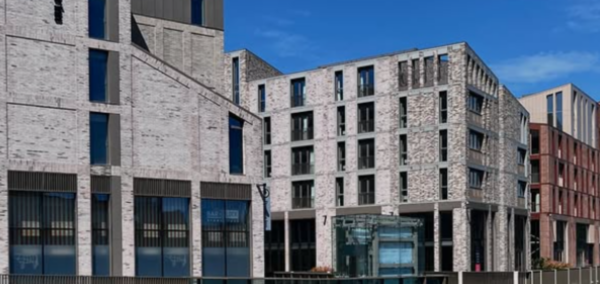
RGU lecturers strike over redundancy fears amid widening higher education crisis
Lecturers at Robert Gordon University have walked out in protest, as looming job cuts ignite fresh unrest across Scotland’s already strained higher education sector
Lecturers at Robert Gordon University (RGU) have begun strike action following the institution’s announcement of further potential redundancies, sparking fresh tensions within an increasingly fragile higher education sector.
The action, backed by the Educational Institute of Scotland (EIS), comes after RGU revealed in November it may cut up to 60 more jobs. This follows the departure of 130 staff through a voluntary severance scheme last year. The university said the proposed cuts are part of efforts to secure long-term financial stability, but staff and union representatives argue the measures threaten both livelihoods and educational quality.
EIS members at RGU voted overwhelmingly in favour of strike action, with 83 per cent supporting the move. Picket lines formed this week outside the university’s Garthdee campus, with staff demanding greater transparency and a commitment to avoiding compulsory redundancies.
Regan Kyle, a lecturer in international fashion business, told the BBC, that the strike was about solidarity and protecting the university’s core values.
“There has been voluntary severance happening, which is never an enjoyable experience,” she said. “Obviously you’re seeing colleagues who have spent years at RGU now being faced with redundancy. It’s challenging times.”
EIS national officer for higher education Garry Ross called the strike “a fight to protect jobs and safeguard quality education at RGU.” He confirmed further walkouts are planned for 1st and 7th May, with a full week of action scheduled from 8th to 12th September if no resolution is reached.
In response, RGU principal and vice-chancellor Professor Steve Olivier acknowledged the strain but defended the university’s actions.
Most Read
“Against what continues to be an extremely challenging sector context, the actions that have been taken so far have been difficult but necessary,” he said.
“RGU must ensure that the institution is in a position to be long-term financially sustainable and can continue to achieve the same success as recent years by offering excellent teaching and learning opportunities while significantly contributing towards the social, economic and cultural development of both the North East and wider nation.”
He expressed disappointment over the industrial action, but affirmed that RGU remains committed to “regular and constructive dialogue” with the EIS and other trade unions.
RGU is not alone in facing such turmoil. The University of Dundee is grappling with a £35m deficit and has announced plans to cut over 600 jobs. Staff there have already held strikes earlier this year, and the Unite union recently confirmed members would be balloted on further action.
Meanwhile, the University of Edinburgh faces a £140m budget shortfall and is under increasing pressure from its own staff, who are currently being balloted over strike action amid redundancy fears.
The wave of industrial unrest across Scottish universities highlights a sector under immense financial strain, compounded by declining international student numbers, rising operational costs, and shifting government funding priorities. As lecturers strike to defend jobs and academic integrity, students and faculty alike are left navigating a deeply uncertain educational landscape.
RGU was contacted for comment but has not yet responded.
Featured image via Jackofhearts101 on Creative Commons























